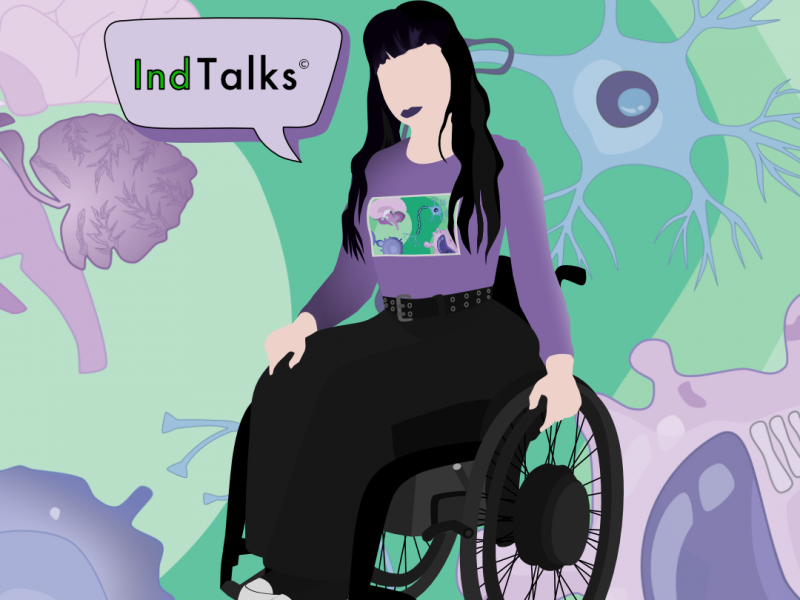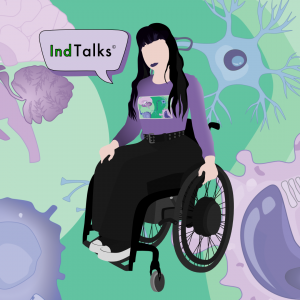Shared Voices, Shared Power: Reflections on a Co-Production Workshop

1. From Being Heard to Being Involved
My name is India, and I am a volunteer for Wakefield Recovery College. For the past year I have been working alongside Lucy and Faye from the South West Yorkshire Partnership NHS Foundation Trust Research and Development Team on a project that has now evolved into a series of workshops known as ‘Recovery with Research: A Learning Journey’.
The connection I have to this project is both personal and professional. Personal — in that I have lived experience of long-term mental health challenges and physical disability; and professional — in that I have prior research experience.
For me, co-producing these workshops stems from a place of curiosity. My first real experience of research was the summer of 2018, at a 4-day forensic science summer camp at the university I eventually went onto graduate from in 2021. During that time in my life, my long-term health issues saw a significant decline, and research gradually became a safe space for me. Just when things felt so out of control, suddenly I had gained some type of familiarity and comfort in knowing I could still find ways to make a difference in the world.
The purpose of the workshop series ‘Recovery with Research: A Learning Journey’ is to bring together lived experience and academic expertise. Co-producing this project has been an incredible collaborative opportunity to share with the community my passion for research, and inform them of just how important and impactful research can be in healthcare and in their own lives.
2. What is Co-Production?
‘Co-production’ is a term commonly used within the context of social care and public services. This refers to a collaborative approach between service-users with lived experience and professionals, where the communities involved are treated as an equal partner, to design, deliver, and evaluate services. Done well, co-production helps to ground discussions in reality, and to maintain a person-centred perspective.
Co-production is an active partnership where people with lived experience are equal collaborators in co-production. This leads to “we said, we did” scenarios, where decisions and actions are jointly owned and implemented. In that vein, co-production should be about equity, inclusivity, teamwork and trust, which requires transparency and mutual respect. People should feel that their suggestions are welcomed and valued [1].
3. Reflections
My experience of working alongside Lucy and Faye (from the South West Yorkshire Partnership NHS Foundation Trust Research and Development Team), in a co-production capacity, was lively and enthusiastic. Each session we met to discuss the workshops, in which I felt I wasn’t just giving feedback – I was part of shaping something real. It was one of the most empowering and creative research experiences I’ve had.
4. Key Themes and Activities from the Workshop
Without giving too many details away, and spoiling the content of the workshop – the structure of the workshops are to share expert insights and introduce new concepts to the participants, however there still aims to be a focus on creating something new together. We aim to do this by formatting the workshops to include talks, discussions, demonstrations, games, videos, brainstorming and research activities.
Though this will be a facilitator-guided series of workshops, hopefully it will be participant-driven. We hope that people with lived experience, trust volunteers, researchers, clinicians and students will attend the workshops.
Throughout the workshops there will be a handful of interactive and collaborative activities that attendees can get involved in. Here are previews of just two of the activities:
● One of the first in the series is the ‘Who am I?’ game – this game is designed to be a fun and interactive way for people to be able to learn and describe different roles within a research team. Attendees will write down a role onto a post-it and stick it onto another person’s head. The person wearing the writing should then ask the other person questions about what they think the role could be, so they can try and guess what is written.
● Another game designed to be interactive and informative focuses on important research studies throughout history. There will be study cards that will be shared among the group and put in the correct order. The studies will range from negative outcomes that identify ethical dilemmas to positive studies that highlight the benefits of conducting research. It should be noted that some of the topics in these studies may be distressing to certain individuals.
5. Your Research, Your Future
We are hopeful that the outcomes of this workshop series will encourage attendees to get involved in the exciting world of research – to get started here are some useful resources:
● Take part in our research – SWYP NHS Foundation Trust: https://www.southwestyorkshire.nhs.uk/about-us-2/research/take-part-in-our-research/
● Research Involvement Group (RIG) – SWYP NHS Foundation Trust: https://www.southwestyorkshire.nhs.uk/about-us-2/research/research-involvement-group/
● National Institute for Health and Care Research (NIHR) – Research skills e-learning: https://www.nihr.ac.uk/career-development/research-skills
● Volunteering – SWYP NHS Foundation Trust: https://www.southwestyorkshire.nhs.uk/get-involved/volunteering/
With that being said, make sure to sign-up for the workshops to get the chance to experience these informative and inclusive activities, plus so much more exciting content such as a pack of resources based on each workshop, that you’ll be able to take home after the course ends!
So, don’t think that you need all of the answers or experience – just the courage to ask the right questions.
By India Fradgley
https://indiafradgley.wixsite.com/indtalks

References
● [1] Scie (2022). Developing our understanding of the difference co-production makes in social care. [online] SCIE. Available at: https://www.scie.org.uk/co-production/understanding-the-difference/.
Popular articles
It’s launch day!
We’ve been working so hard behind the scenes over the last few…
A week in the life of…Emily
Hello! I am Emily one of the Recovery College Coordinators. No two…
Hearing Voices – not just a mental health condition
The experience of hearing voices that other people do not is more…

